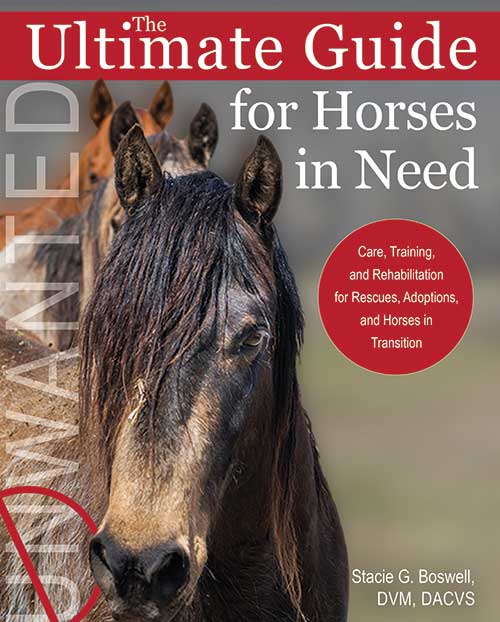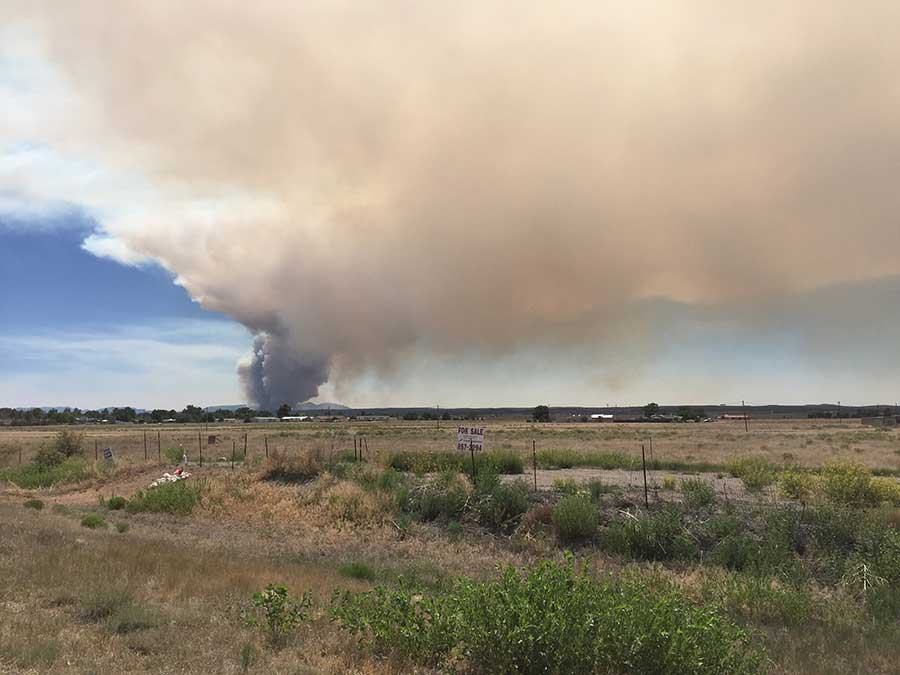
By Dr. Stacie Boswell
In order to prepare yourself and your horse for a possible disaster, the first step is to learn about your locale. Evaluate disasters your community has experienced in the past. Look at your terrain and determine what type of disaster is most likely. Consider where, specifically, your horse is housed. He could be at the base of a forest, near a river, or on the plains, rendering him susceptible to fire, flood, or tornadoes. If you live near railroad tracks or industry, hazmat exposure may be a real threat.
Find your local community emergency response team (CERT). Contact may be available through your local extension office. There is a CERT in every state. Learn what they recommend—they know local disasters best. Although many evacuation guidelines are general, it does you no good to prepare for a volcano if you live in Kansas. Training and credentialing workshops are available nationwide for individuals interested in learning to be a team member of a certified rescue effort.
Plan Ahead
The severity and number of weather-related disasters is on the rise. According to a Federal Emergency Management Agency (FEMA) survey, fewer than 40 percent of people have an emergency plan. After careful consideration of the possible disasters that may strike in your area, organize yourself and prepare. Your horses are your responsibility, and good preparation will keep you ready in case you are displaced for any reason.
Prepare your plan: You need to have an evacuation plan in place, and everyone in your household or rescue group should know about it in advance.122 It’s a good idea to share your personal evacuation plans with neighbors, pet-sitters, and friends or family helping you. Your plan will also help them with their plan. Post evacuation plans in your tack room or barn, and keep a copy in your trailer as well.
For larger rescues or ranches, evacuating dozens of horses may not be practical or possible. Consider shelter-in-place options, whereby disaster risks are mitigated through land management and plans for emergency care at home. Gather any items you may need such as halters, lead ropes, medications, and feed for your horses. Have a plan for leaving in five minutes, five hours, or five days.
Learn about your local authorities: Who is in charge if your horse is separated from you and you are trying to find him? Know what animal shelters may be available in your area. Your local animal control, emergency management team, or agricultural extension agent office are resources that can help you with this information, as well as local disaster response plans prepared by governmental agencies or organizations.
Location: Your evacuation location should be well beyond the geographic area that would be affected by your possible local disaster. For example, if you live in forested mountain terrain, plan to house your horses in the valley so they will be far away from fire danger.
You may have a friend in mind who can house your horses in the event of an emergency. Make sure far in advance that the friend is willing and able to do so. It is important that your friend be close enough that you can get to her in a few hours’ time but far enough away she will not be experiencing the same disaster. Stay flexible and plan for a secondary shelter. Your primary plan may become inaccessible because of closed roads or other unforeseen circumstances. Once each destination is established, identify your route and alternative routes.

Prepare for Transport
Evacuate your horses early, well before requirements. You might be able to leave your house with your dog and cat at the drop of a hat, but coordinating the effort to move horses is more time-consuming.
For a variety of reasons, I advocate that every horse owner have a functional truck and horse trailer. It doesn’t have to be brand new or fancy, just safe and in good working order. Otherwise, you could be at the mercy of other people during an emergency.
If you don’t own a trailer, make sure you have at least two people you can contact to ship your horse in an emergency. If there is any question that evacuation may be necessary, get your horses moved as soon as possible. Plan extra time so your shipper can take care of your horses as well as her own.
Disaster preparedness is a motivator for trailer training, so school your horse and have him ready. The more stressed and fearful your horse is, the harder it will be to load him in the trailer, so train him to be confident in a variety of circumstances. Load him in the rain. Load him in the dark. Load him in the wind. Load him in the snow. Load him in the sun. Load him into a different trailer. You may not be there for your horse. Enlist the help of friends and family members for further training—just because your Mustang has learned to trust you and will go where you ask, doesn’t mean he will do it for others. Prepare for any variation you can think of.
During one fire in New Mexico, a husband and wife farrier team repeatedly drove into the flames and returned with loads of horses. They had to encourage, use ropes, and cajole horses in with food. The longer it took to load one horse, the longer the next horse had to wait, and the higher the risk to these volunteers.
Rescuers learned with Hurricane Katrina that evacuation of animals is also critical for evacuation of people and families to safety. Sometimes, people only evacuated because of law enforcement. Don’t be that person. Law enforcement and rescue resources are needed to help everyone, but we should all do our part to prepare, and not be a resource-sucking victim.
This excerpt from The Ultimate Guide for Horses in Need by Dr. Stacie Boswell is reprinted with permission from Trafalgar Square Books (www.horseandriderbooks.com).
Find more valuable information in our section on Health & Education.
There's more good reading that you might find interesting in our section on Books.

































